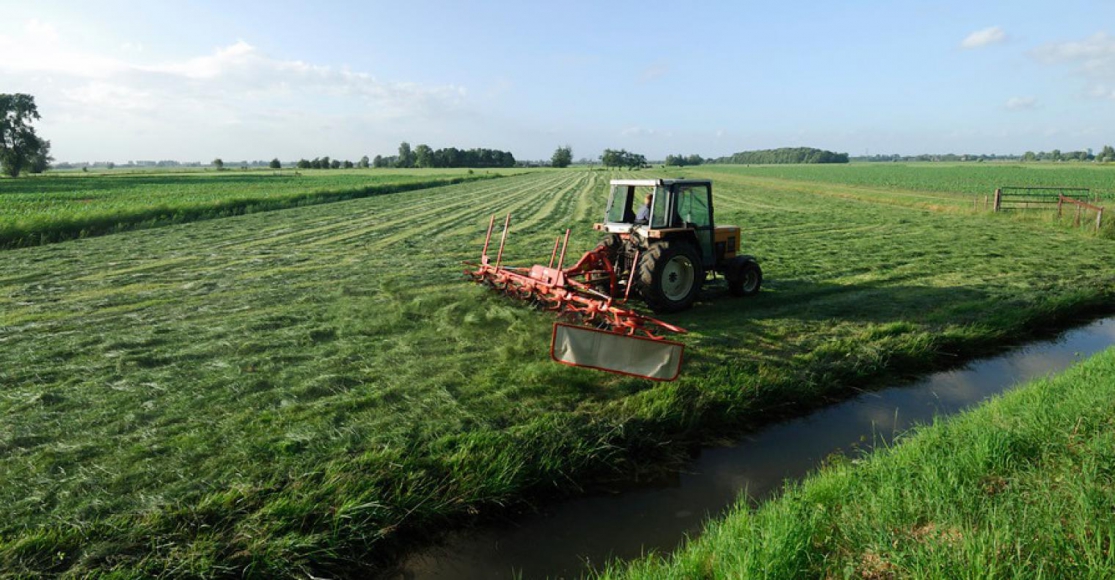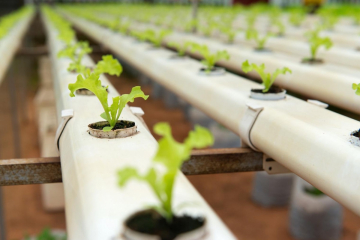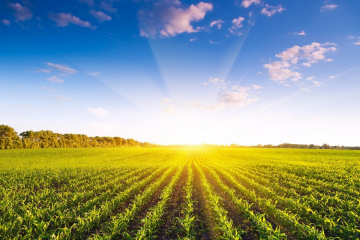From relentless innovation and shifting consumer expectations to increasing awareness and concern around climate change—there’s little doubt the marketplace and individual attitudes are changing at a rapid pace.
As a result, food and beverage companies must be prepared to understand, predict, and adapt to the ever-changing tides if they want to survive and thrive for the long-term. This means digging deep to learn from the past and coming to terms with the fact that the future is no longer on the horizon—the future is already here.
At the 2017 Inogen Worldview Conference, attendees came face to face with the future, hearing keynote presentations from industry thought leaders about macrotrends, industry disruptors, and new sustainability ideas for forging ahead.
So, as we all embark on 2018, below we share some poignant insights from our panel of keynote speakers to help you gain fresh perspectives and find inspiration to fuel your sustainability strategy today, tomorrow, and beyond.
1. “No part of ‘the way things have always been’ is safe.”
– Louisa Burwood-Taylor, Chief Editor, AgFunder News
Technology has become a vital component of our daily lives, as well as a driver of success for businesses across industries. But as AgFunder News’s Louisa Burwood-Taylor shared, the agricultural sector within the food and beverage industry has been left behind in that regard.
“According to McKinsey consulting group, [ag] is the least digitized industry,” she reported. “The result? According to a major food company, ‘8 of 10 biggest food and ag companies could disappear in next decade,’ painting a picture of the industry as a textbook example of a sector ripe for disruption.”
What does that disruption look like? From the rise of big data and analytics to biotech and engineering innovations, Burwood-Taylor said emerging disruptive technologies cover nearly all aspects of food production, transport, and consumption. As result, your agricultural company can no longer afford to sideline technology if you want to stay in business.
2. “Success will necessitate prioritizing initiatives, starting small, and having as much impact as possible given your constraints.”
– Amy Braun, Sustainability Director, Kellogg Company
While new technology and other industry disruptors pose great challenges, they’re also wrought with opportunity—which many companies are trying to seize. Now is not the time to get swept up in conversation, but rather it’s time to look for ways to make innovations workable, accessible, and scalable to help you reach your goals. And according to Kellogg’s Amy Braun, that takes balance—with a healthy side of patience.
“No organization has the capacity to simultaneously address every social, environmental, and supply chain issue that touches them, so success will necessitate prioritizing initiatives, starting small, and having as much impact as possible given your constraints,” she said. “A balanced approach with what’s right for your organization will help bring focus to key members of the value chain along with transparent communication about sustainable practices.”
3. “There is real opportunity for forward-thinking organizations to differentiate themselves and attract top-of-the-class talent.”
– Tensie Whelan, Director, NYU Stern School for Sustainable Business
During the Inogen Worldview Conference, one question that surfaced was: How can the “unsexy” food and beverage industry attract the best and the brightest talent? According to NYU’s Tensie Whelan, sustainability can play a key role.
“Food and beverages have become integral to social status amongst millennials, who proactively share their dining experiences and habits on social media platforms; many millennials also relate well to ‘authentic’ brands who have a social purpose,” she explained. “Organizations need to be sure to present the full picture of who they are, and not be afraid to go deeper with case studies and examples.”
“As the expectations of students (and, in turn, employees) continue to shift,” she added, “There is real opportunity for forward-thinking organizations to differentiate themselves and attract top-of-the-class talent, which can further strengthen their position into the sustainability-focused future.”
4. “Putting your metaphorical eggs in multiple strategic ‘baskets’ offers the chance to play to your strengths and be part of the evolving landscape.”
– Stephen Rannekleiv, Executive Director, Food & Agribusiness Research, Rabobank
Enhancing supply chain continuity and sustainability is an absolute necessity to ensure the integrity of your food or beverage company. But to achieve success in this area, you must push beyond the four walls of your business. According to Rabobank’s Stephen Rannekleiv, this requires a multi-pronged, strategic approach that is tailored to your business.
As an example, Rannekleiv shared that his company is launching new collaborative programs, as well as getting involved in other initiatives to gain new insights, foster collaboration, and deliver the fullest possible picture of the industry landscape to their clients.
While Rabobank’s position in the industry is quite different than that of a traditional food or beverage company, the essence of their strategy can be a helpful framework.
“Traditional food and beverage companies can take a similar holistic view of the challenges and opportunities the current situation has to offer, then create a unique approach to adaptation and innovation, tailored to their organization,” he explains. “Putting your metaphorical eggs in multiple strategic ‘baskets’ offers the chance to play to your strengths and be part of the evolving landscape, rather than passively waiting for change to come to you at your own risk.”
5. “Don’t fight the future, forge the future.”
– Tod Christenson, Food & Beverage Segment Leader, Antea Group
Simply put, the food and beverage industry is facing very different risks and challenges than it has in the past. As a result, like it or not, corporate responsibility and sustainability have become integral to creating business resiliency and bolstering brand strength—and now is the time to be proactive and forward-thinking.
As our own Tod Christenson so eloquently said: “Don’t fight the future, forge the future.”
By staying future- and customer-focused, as well as being open to new partnerships, technologies, and ideas, Christenson says you can continuously gain a better understanding of their full scope of risk and uncover opportunities to fuel their business and sustainability strategies.
Want More Food & Beverage Sustainability Insights?
Good news. There’s certainly more from where this came from. These leaders were kind of enough to contribute articles featuring their insights, which we’ve compiled into a free ebook: Change or Be Changed: The Future of Food & Beverage is Now.
Want more news and insights like this?
Sign up for our monthly e-newsletter, The New Leaf. Our goal is to keep you updated, educated and even a bit entertained as it relates to all things EHS and sustainability.
Get e-NewsletterHave any questions?
Contact us to discuss your environment, health, safety and sustainability needs today.





